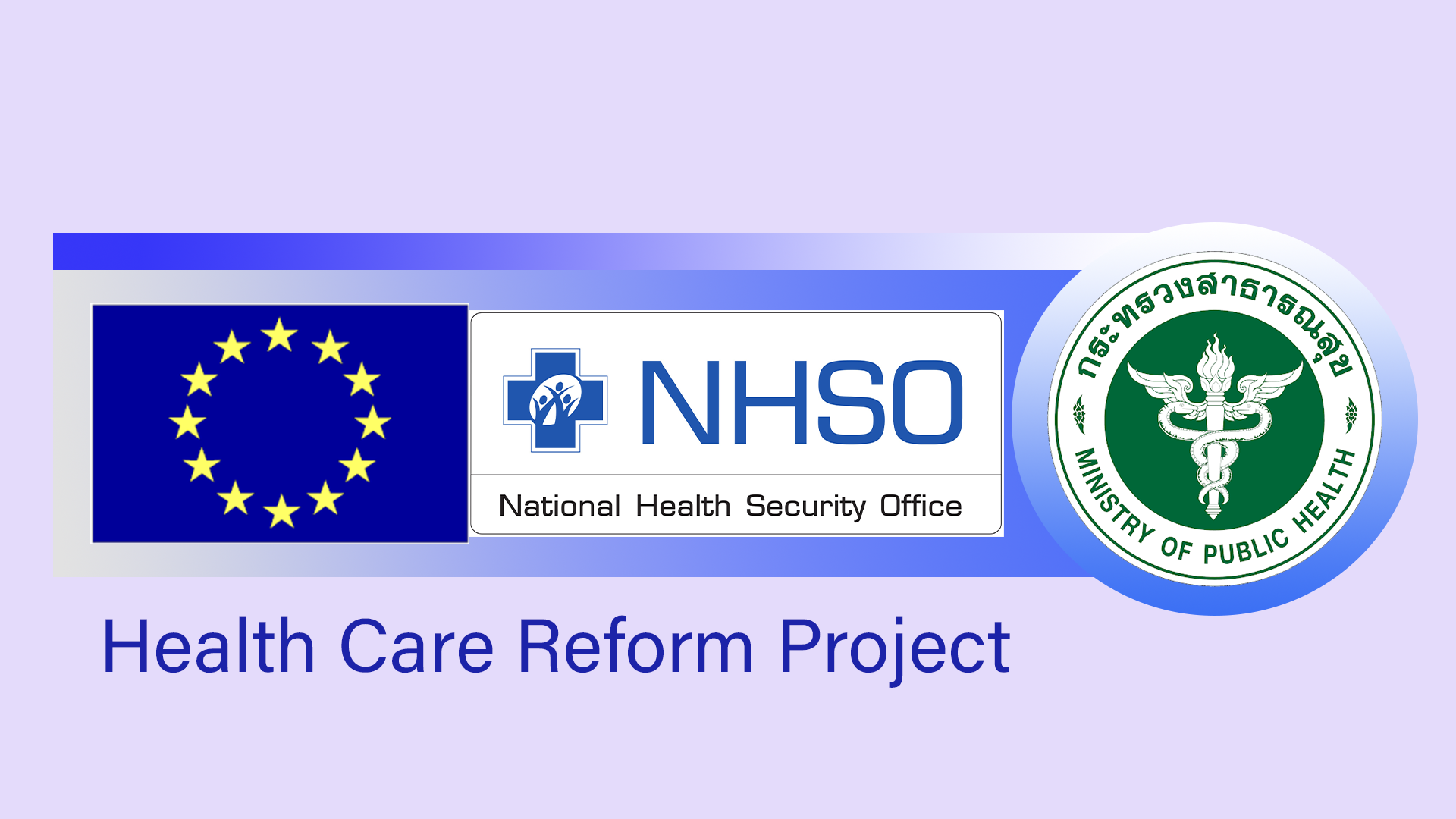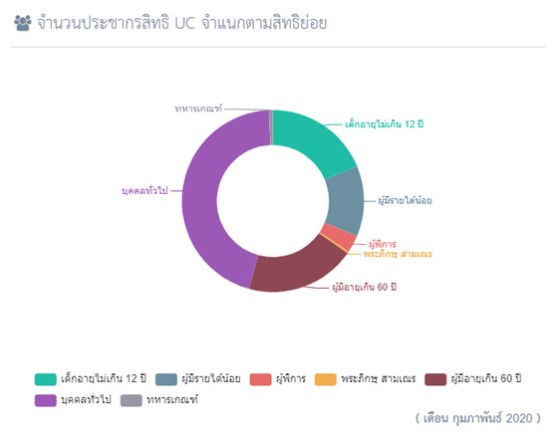Thailand supplies diphtheria anti-toxin to Myanmar

Thailand shipped 300 vials of diphtheria anti-toxin to the Shan State of Myanmar, in an attempt to provide humanitarian aids that can save people from a deadly disease.
Dr Rattaphon Triamwichanon, Assistance Secretary-General of Thailand's National Health Security Office (NHSO) said that the World Health Organization (WHO) Country Office for Myanmar informed the NHSO, through WHO Thailand, "an unusual cluster" of diphtheria cases had been detected in Eastern Shan State.
Myanmar's Ministry of Health and Sports was conducting a rapid risk assessment and urgently required for the supply of 300 vials of diphtheria anti-toxin.
After receiving the request on 27 Aug, the NHSO took an immediate action by contacting Ramathibodi Poison Center — a unit of Ramathibodi Hospital that collaborates with the NHSO in the Thai National Antidote Project of Thailand (TNAP) for securing necessary antidotes and antivenoms.
The center, which is located in Bangkok, also acts as the WHO Collaborating Centre for the Prevention and Control of Poisoning.
Its team was able to ship diphtheria anti-toxin to Myanmar on the same day of the request arrival. The vials left Bangkok for Chiang Rai where local Thai health official sent them to Shan State via Thai-Myanmar border.
"The incident shows the multi-sectorial collaboration that aims to save people's lives. Previously, we shipped medicines to many other countries as part of our effort to provide humanitarian aids," said Dr Rattaphon.
"While the coronavirus is ravaging the world, other communicable diseases continue spreading in many countries where local communities can't access treatment. Our collaboration helps fill this gap."
Diphtheria is a severe infection caused by strains of bacteria called Corynebacterium diphtheria. It can lead to difficulty breathing, heart failure, paralysis, and death.
The diphtheria bacteria spread from person to person through respiratory droplets or touching infected open sores, making people living in the dense-population communities get the risk of contracting to the disease. It can be prevented by vaccination.
The success of TNAP was recognized by the World Health Organization (WHO), which encouraged Thailand to expand the project to a regional level under iCAPS program, or Initiation for Coordinated Antidotes Procurement in Southeast Asia. Thailand has shipped antidotes to its partner countries since then.
In 2018, Thailand sent botulinum antitoxin to threat three patients in Nigeria. One died, unfortunately. Two were in an intensive care unit when WHO representative in Nigeria notified Thailand about the case.
"TNAP reflects the capacity of Thailand in procuring and securing orphan drugs for both domestic and international patients,
"Shipping medicines to our partner countries is an important mission. It shows our effort to provide humanitarian aids while maintaining good relationships with our partner nations."
IN DEPTH
Thailand supplies diphtheria anti-toxin to Myanmar

Thailand shipped 300 vials of diphtheria anti-toxin to the Shan State of Myanmar, in an attempt to provide humanitarian aids that can save people from a deadly disease.
Dr Rattaphon Triamwichanon, Assistance Secretary-General of Thailand's National Health Security Office (NHSO) said that the World Health Organization (WHO) Country Office for Myanmar informed the NHSO, through WHO Thailand, "an unusual cluster" of diphtheria cases had been detected in Eastern Shan State.
Myanmar's Ministry of Health and Sports was conducting a rapid risk assessment and urgently required for the supply of 300 vials of diphtheria anti-toxin.
After receiving the request on 27 Aug, the NHSO took an immediate action by contacting Ramathibodi Poison Center — a unit of Ramathibodi Hospital that collaborates with the NHSO in the Thai National Antidote Project of Thailand (TNAP) for securing necessary antidotes and antivenoms.
The center, which is located in Bangkok, also acts as the WHO Collaborating Centre for the Prevention and Control of Poisoning.
Its team was able to ship diphtheria anti-toxin to Myanmar on the same day of the request arrival. The vials left Bangkok for Chiang Rai where local Thai health official sent them to Shan State via Thai-Myanmar border.
"The incident shows the multi-sectorial collaboration that aims to save people's lives. Previously, we shipped medicines to many other countries as part of our effort to provide humanitarian aids," said Dr Rattaphon.
"While the coronavirus is ravaging the world, other communicable diseases continue spreading in many countries where local communities can't access treatment. Our collaboration helps fill this gap."
Diphtheria is a severe infection caused by strains of bacteria called Corynebacterium diphtheria. It can lead to difficulty breathing, heart failure, paralysis, and death.
The diphtheria bacteria spread from person to person through respiratory droplets or touching infected open sores, making people living in the dense-population communities get the risk of contracting to the disease. It can be prevented by vaccination.
The success of TNAP was recognized by the World Health Organization (WHO), which encouraged Thailand to expand the project to a regional level under iCAPS program, or Initiation for Coordinated Antidotes Procurement in Southeast Asia. Thailand has shipped antidotes to its partner countries since then.
In 2018, Thailand sent botulinum antitoxin to threat three patients in Nigeria. One died, unfortunately. Two were in an intensive care unit when WHO representative in Nigeria notified Thailand about the case.
"TNAP reflects the capacity of Thailand in procuring and securing orphan drugs for both domestic and international patients,
"Shipping medicines to our partner countries is an important mission. It shows our effort to provide humanitarian aids while maintaining good relationships with our partner nations."
Events
Thailand supplies diphtheria anti-toxin to Myanmar

Thailand shipped 300 vials of diphtheria anti-toxin to the Shan State of Myanmar, in an attempt to provide humanitarian aids that can save people from a deadly disease.
Dr Rattaphon Triamwichanon, Assistance Secretary-General of Thailand's National Health Security Office (NHSO) said that the World Health Organization (WHO) Country Office for Myanmar informed the NHSO, through WHO Thailand, "an unusual cluster" of diphtheria cases had been detected in Eastern Shan State.
Myanmar's Ministry of Health and Sports was conducting a rapid risk assessment and urgently required for the supply of 300 vials of diphtheria anti-toxin.
After receiving the request on 27 Aug, the NHSO took an immediate action by contacting Ramathibodi Poison Center — a unit of Ramathibodi Hospital that collaborates with the NHSO in the Thai National Antidote Project of Thailand (TNAP) for securing necessary antidotes and antivenoms.
The center, which is located in Bangkok, also acts as the WHO Collaborating Centre for the Prevention and Control of Poisoning.
Its team was able to ship diphtheria anti-toxin to Myanmar on the same day of the request arrival. The vials left Bangkok for Chiang Rai where local Thai health official sent them to Shan State via Thai-Myanmar border.
"The incident shows the multi-sectorial collaboration that aims to save people's lives. Previously, we shipped medicines to many other countries as part of our effort to provide humanitarian aids," said Dr Rattaphon.
"While the coronavirus is ravaging the world, other communicable diseases continue spreading in many countries where local communities can't access treatment. Our collaboration helps fill this gap."
Diphtheria is a severe infection caused by strains of bacteria called Corynebacterium diphtheria. It can lead to difficulty breathing, heart failure, paralysis, and death.
The diphtheria bacteria spread from person to person through respiratory droplets or touching infected open sores, making people living in the dense-population communities get the risk of contracting to the disease. It can be prevented by vaccination.
The success of TNAP was recognized by the World Health Organization (WHO), which encouraged Thailand to expand the project to a regional level under iCAPS program, or Initiation for Coordinated Antidotes Procurement in Southeast Asia. Thailand has shipped antidotes to its partner countries since then.
In 2018, Thailand sent botulinum antitoxin to threat three patients in Nigeria. One died, unfortunately. Two were in an intensive care unit when WHO representative in Nigeria notified Thailand about the case.
"TNAP reflects the capacity of Thailand in procuring and securing orphan drugs for both domestic and international patients,
"Shipping medicines to our partner countries is an important mission. It shows our effort to provide humanitarian aids while maintaining good relationships with our partner nations."
RESOURCE CENTER
SECRETARY-GENERAL
Thailand supplies diphtheria anti-toxin to Myanmar

Thailand shipped 300 vials of diphtheria anti-toxin to the Shan State of Myanmar, in an attempt to provide humanitarian aids that can save people from a deadly disease.
Dr Rattaphon Triamwichanon, Assistance Secretary-General of Thailand's National Health Security Office (NHSO) said that the World Health Organization (WHO) Country Office for Myanmar informed the NHSO, through WHO Thailand, "an unusual cluster" of diphtheria cases had been detected in Eastern Shan State.
Myanmar's Ministry of Health and Sports was conducting a rapid risk assessment and urgently required for the supply of 300 vials of diphtheria anti-toxin.
After receiving the request on 27 Aug, the NHSO took an immediate action by contacting Ramathibodi Poison Center — a unit of Ramathibodi Hospital that collaborates with the NHSO in the Thai National Antidote Project of Thailand (TNAP) for securing necessary antidotes and antivenoms.
The center, which is located in Bangkok, also acts as the WHO Collaborating Centre for the Prevention and Control of Poisoning.
Its team was able to ship diphtheria anti-toxin to Myanmar on the same day of the request arrival. The vials left Bangkok for Chiang Rai where local Thai health official sent them to Shan State via Thai-Myanmar border.
"The incident shows the multi-sectorial collaboration that aims to save people's lives. Previously, we shipped medicines to many other countries as part of our effort to provide humanitarian aids," said Dr Rattaphon.
"While the coronavirus is ravaging the world, other communicable diseases continue spreading in many countries where local communities can't access treatment. Our collaboration helps fill this gap."
Diphtheria is a severe infection caused by strains of bacteria called Corynebacterium diphtheria. It can lead to difficulty breathing, heart failure, paralysis, and death.
The diphtheria bacteria spread from person to person through respiratory droplets or touching infected open sores, making people living in the dense-population communities get the risk of contracting to the disease. It can be prevented by vaccination.
The success of TNAP was recognized by the World Health Organization (WHO), which encouraged Thailand to expand the project to a regional level under iCAPS program, or Initiation for Coordinated Antidotes Procurement in Southeast Asia. Thailand has shipped antidotes to its partner countries since then.
In 2018, Thailand sent botulinum antitoxin to threat three patients in Nigeria. One died, unfortunately. Two were in an intensive care unit when WHO representative in Nigeria notified Thailand about the case.
"TNAP reflects the capacity of Thailand in procuring and securing orphan drugs for both domestic and international patients,
"Shipping medicines to our partner countries is an important mission. It shows our effort to provide humanitarian aids while maintaining good relationships with our partner nations."
VIDEOS
Thailand's UHC Journey
UHC Public relations












